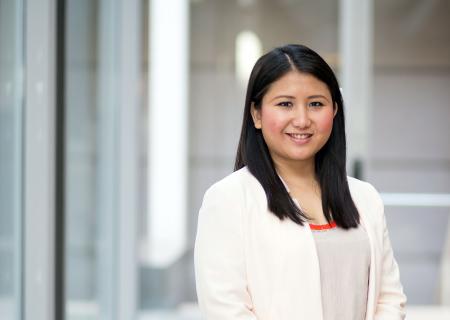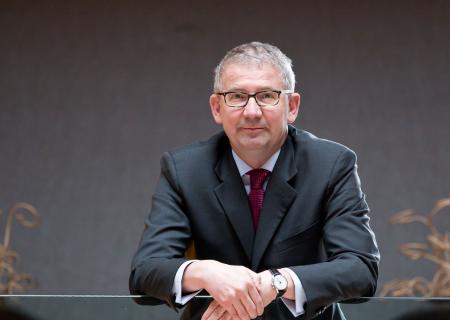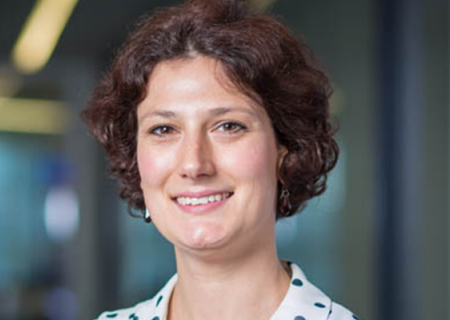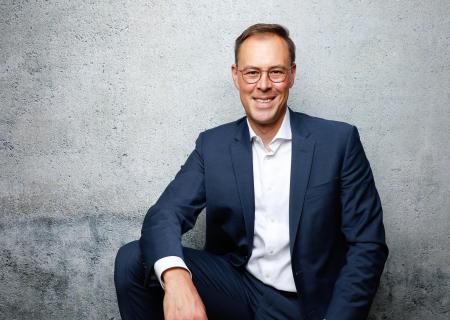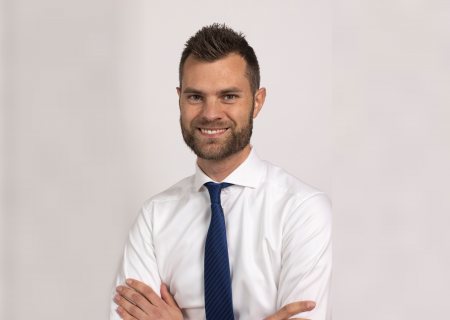Bernhard Berg
Honorary INREV Board Member
Honorary INREV board member Bernhard Berg talks about his hopes for the organisation as Asian investors settle in Europe
INREV’s recent focus on the promotion of global standards and cooperation with international associations, such as ANREV, has become increasingly important to Hannover Leasing’s Bernhard Berg, both as an honorary board member of INREV and a fund manager in the vanguard of Asian investment into Europe.
It’s fully anticipated that Asian investment into European real estate will be a huge influencing factor in the market over decades to come. But the question of what these new investors - with almost limitless cash to invest - want from European investment managers is not so thoroughly understood.
How they go about investing this cash, and selecting the managers with whom they invest it with, is not a simple task. Equally, for managers, the due diligence process of working with investors from another continent is not always straightforward either.
But Berg believes the organisation will continue its leading role in helping both institutional investors and fund managers across the globe to work more closely together and facilitate cross-border investment.
He also predicts that even as Asian investors seek to increase their scale, they will continue with their current strategy of using small club deals and joint ventures with an exclusive group of investment managers.
Governance and reporting is a key part of Berg’s work with INREV. He feels that with the investment management world now increasingly globalised, the achievement that INREV and ANREV have made in creating a global standardised due diligence framework for fund managers and LPs has been key to helping capital to flow more easily around the globe.
‘The work that INREV and ANREV have done has helped both investors and fund managers,’ he says. ‘In creating a standardised global due diligence process and due diligence questionnaire, you have the same questions for all international investors. Fund managers can prepare the funds and opportunities they are offering far ahead of time, as they know the questions they need to answer.
‘While for investors, when they are talking to several managers, they can compare the strengths and weaknesses of all of them and make the best choice,’ he adds.
Berg, who is responsible for investment for institutional investors at Hannover, also sits on the INREV Fund Manager Advisory Council (the renamed Fund Manager Forum Management Committee), which comprises only fund managers.
The role of the advisory council is to act as a strategic sounding board to the CEO and provide fund manager input on future initiatives, as well as to increase participation by fund managers.
Hannover, which Berg joined from IVG last year, has been at the forefront of investing cash in Continental Europe for Asian sovereign wealth and pension funds and particularly those from the region’s powerhouse, China.
In partnership with Chinese fund Gingko Tree, which invests in real estate for Chinese sovereign wealth fund SAFE, Hannover recently bought two assets in Brussels; in 2013 the Belair office building, and the Covent Garden office building in December 2014.
Asian sovereign wealth and pension funds are very similar to big European investors. They are long-term, conservative and very professional.
‘Asian sovereign wealth and pension funds are very similar to big European institutional investors or pension funds,’ explains Berg. ‘They are long-term investors, conservative and very professional. They will continue to invest in Europe because they are looking for diversification from their home markets, where they have invested a lot and because they like the stability provided by long lease lengths.’
These investors are also very similar in terms of the depth and quality they are looking for in terms of reporting, Berg has observed: ‘They want exactly the same as a European institution would - they want detail on performance, and without wanting to be involved in managing the asset, they want to know exactly what is going on.’
This desire to be in touch with their investments, he argues, is what has led Asian institutions to invest through joint venture and club deals, rather than becoming limited partners in larger co-mingled funds, or investing directly.
‘They don’t want to manage the investment themselves, but they do want to be close to the investment and have an element of control that you don’t get with a co-mingled fund. I think that will stay the same for the next two to three years. The only thing which could change this would be if there aren’t enough opportunities that allow them to put money out in this kind of structure,’ he says.
Regarding the qualities Asian investors are looking for from fund managers Berg says that track record in a particular market over the past few years is vital. He adds: ‘They want to see the people they will be working with, and to get along with them - after all this is a people business. They also want to see examples of asset and investment management performance, and how these are reported.’
ENDURING CHALLENGES
The areas of importance for INREV, Berg argues, are similar to the early days of INREV when he was part of the first wave of investors to join. ‘One of the really important things for me on the Fund Manager Advisory Council is to improve the INREV Database on performance to try and include all European non-listed real estate funds. If you have more transparency for investors and fund managers you can improve due diligence and governance through self-assessment and self-improvement, and that is always the best way to improve. If more managers input into the database this would help this process,’ he explains.
However INREV’s work representing the real estate investment industry to the policymakers designing legislation that affects it is becoming an indispensable part of the organisation’s remit, he believes.
‘It is very important for investors and fund managers to have a common voice in Brussels over the next few years. Over the past three or four years we’ve been dealing with the creation of the Alternative Investment Fund Managers Directive, and over the next 24 months we need to see how it works in practice and if it needs to be reworked,’ he says.
Despite the political climate Berg believes real estate funds are well positioned in the wider investment universe, even as alternative asset classes are gaining strength. ‘It is a good time to be a real estate fund manager,’ he argues.
‘Private and institutional investors are very interested in real estate currently, especially German investors. The performance of other asset classes has been so poor that they’re looking for alternatives, and the spread between long-term bonds and real estate is very appealing.’
As capital sources become more global and investors and managers look for the best ways to invest together in an increasingly competitive European market, the work Berg started at INREV 15 years ago will be evermore crucial - helping members produce the best performance possible, and across the world.


